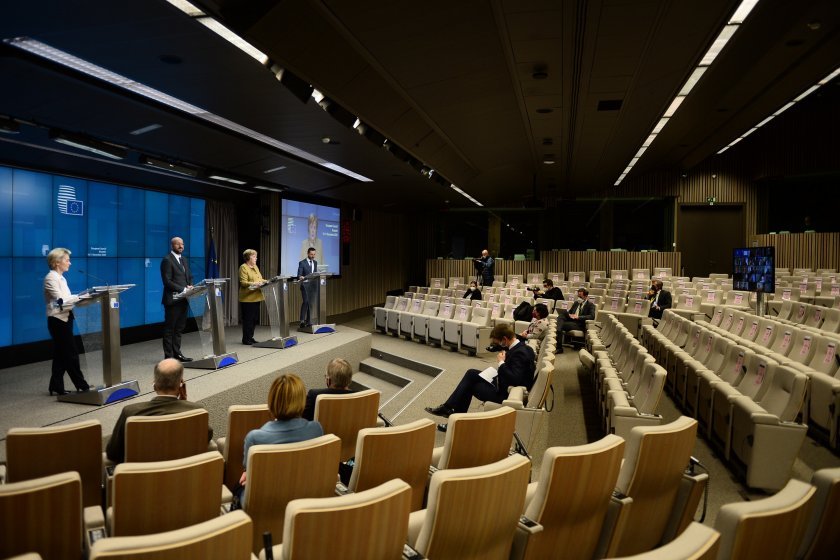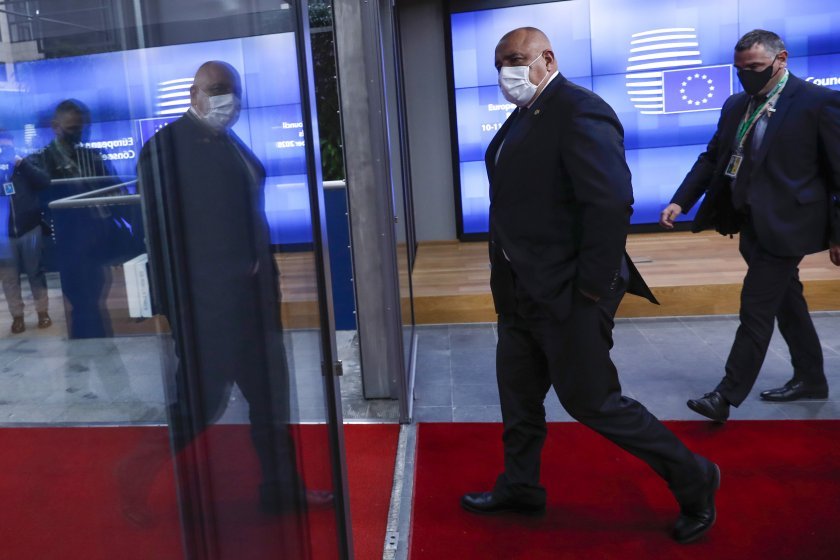
In a record-breaking long summit, which went on uninterrupted from midday yesterday (December 10) until this morning, EU leaders agreed on a seven-year budget and fund for recovery from the coronavirus pandemic and a more ambitious climate policy.
Bulgarian Prime Minister Boyko Borissov said in Brussels that there could be a third wave of COVID-19 next year, and economic recovery is not expected until August next year.
The COVID-19 pandemic in the context of the upcoming Christmas holidays and the start of immunization in Europe were among the main topics for the leaders.
Boyko Borissov said that the exit from the economic crisis is expected in August-October, given that 70% of the EU population is vaccinated. According to him, Bulgaria is logistically prepared to receive the first batch of vaccines of "Pfizer" and "BioNTech", after their approval by the European Medicines Agency and start immunization.

"Yes, everyone is very worried about the financial and economic indicators. At the same time, the only country for which ECB forecasts 6% increase of GDP next year turns out to be China. I leave the comments and reflections to you. While the GDP of the EU, the US is minus 10%, minus 15%. So we looked at how the fiscal rules will run in the coming months, because there is no talk of re-opening Europe until the end of March. Moreover,a third wave and very severe restrictions are expected," he said.
According to Borissov, the statistics this week and the results after 5 days off stricter measures were “good, but there is no indication that the pandemic in Bulgaria will end by Christmas”.
“Christmas and New Year should be celebrated in a close family circle, without mass gatherings,” he said
The European leaders have approved the union's next seven-year budget, along with a nearly 1,800 billion euro recovery fund. Poland and Hungary lifted their veto on the budget and the fund after receiving assurances that the new mechanism for tying EU funds to the rule of law will only be activated once the Court of Justice has ruled on it.
Angela Merkel - Chancellor of Germany: I am really relieved, I mean - a stone fell from my heart, because after our joint efforts we can now provide the budget and the reconstruction fund, together with the rule of law mechanism, for approval in the European Parliament. We have done a great job, but we all see how the second wave of the pandemic has taken hold of us, so it was absolutely necessary to have security for EU finances.
The discussion on climate was the longest. The EU leaders have agreed to reduce harmful carbon dioxide emissions by 55% by 2030, compared to 1990 levels as a step towards climate neutrality in 2050. Poland, which is heavily dependent on the coal industry, has requested and received guarantees of additional financial assistance to achieve its goals. They will apply to the EU as a whole, not to individual countries. Natural gas and nuclear energy remain part of the transition to a green economy.
Ursula von der Leyen - President of the European Commission: Today's agreement paves the way for climate neutrality in 2050, gives security to investors, businesses, authorities and people. It makes us ready for the future. All countries must benefit from the transition with economic growth, a cleaner environment and healthier people. The European Green Pact will be our growth strategy.
The European leaders have agreed to impose sanctions on individual Turkish individuals and companies over unauthorized gas drilling near Cyprus.
The adoption of stricter restrictive measures against Ankara has been postponed to March next year.
